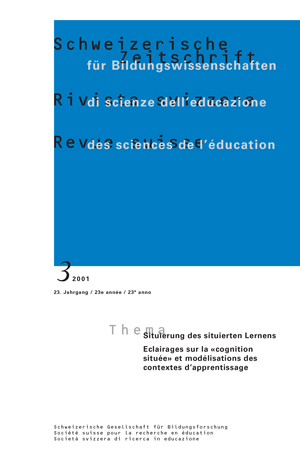Contextual Cognition and the Historical-Cultural paradigm of Vygotsky: Central Order of Problems and Questions
DOI:
https://doi.org/10.24452/sjer.23.3.4616Abstract
The aim of this article is to first highlight some of the main theoretical aspects which underlie the conceptions of the contextual cognition amongst the pioneers of this tradition. Secondly, three key theoretical themes focused on by these contextual cognitionists are specifically analyzed: the question of the units of analysis, which is intrinsically linked to the social nature of cognition and learning; the different ways to define the processes of mediation in the process of activities; the theorization of school activities versus everyday activities and how these two kinds of activities are or are not related. Through these themes, a comparison of the theoretical options of both contextual cognition and the Vygotskian framework is proposed.
Downloads
Downloads
Published
Issue
Section
License
Copyright (c) 2001 Christiane Moro

This work is licensed under a Creative Commons Attribution 4.0 International License.



